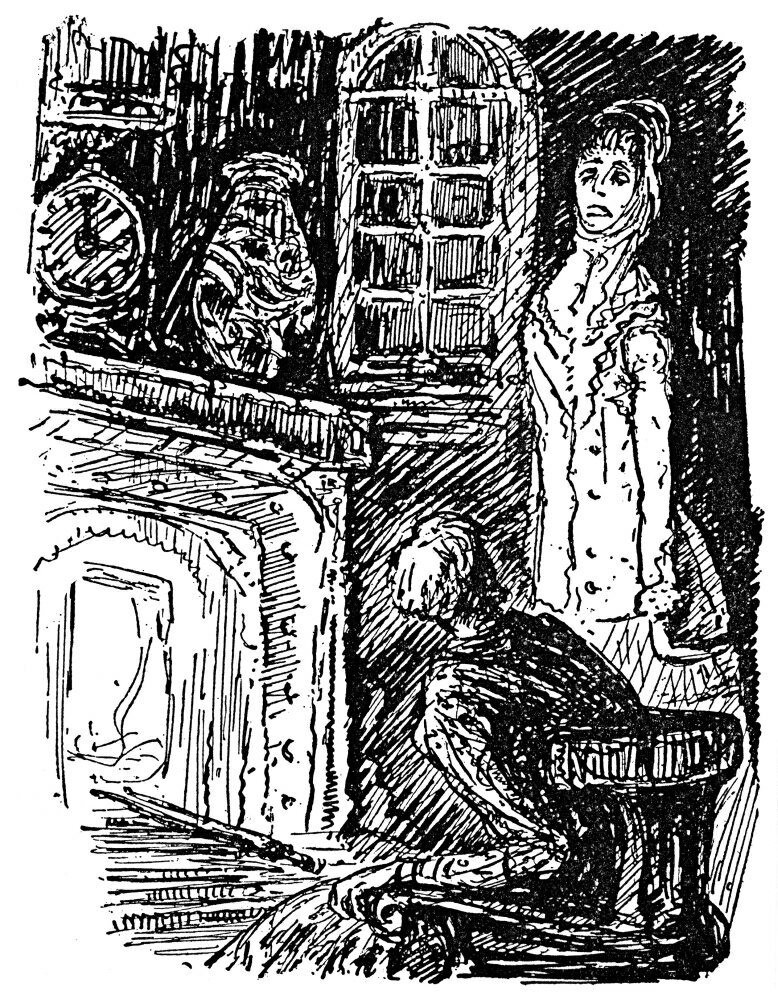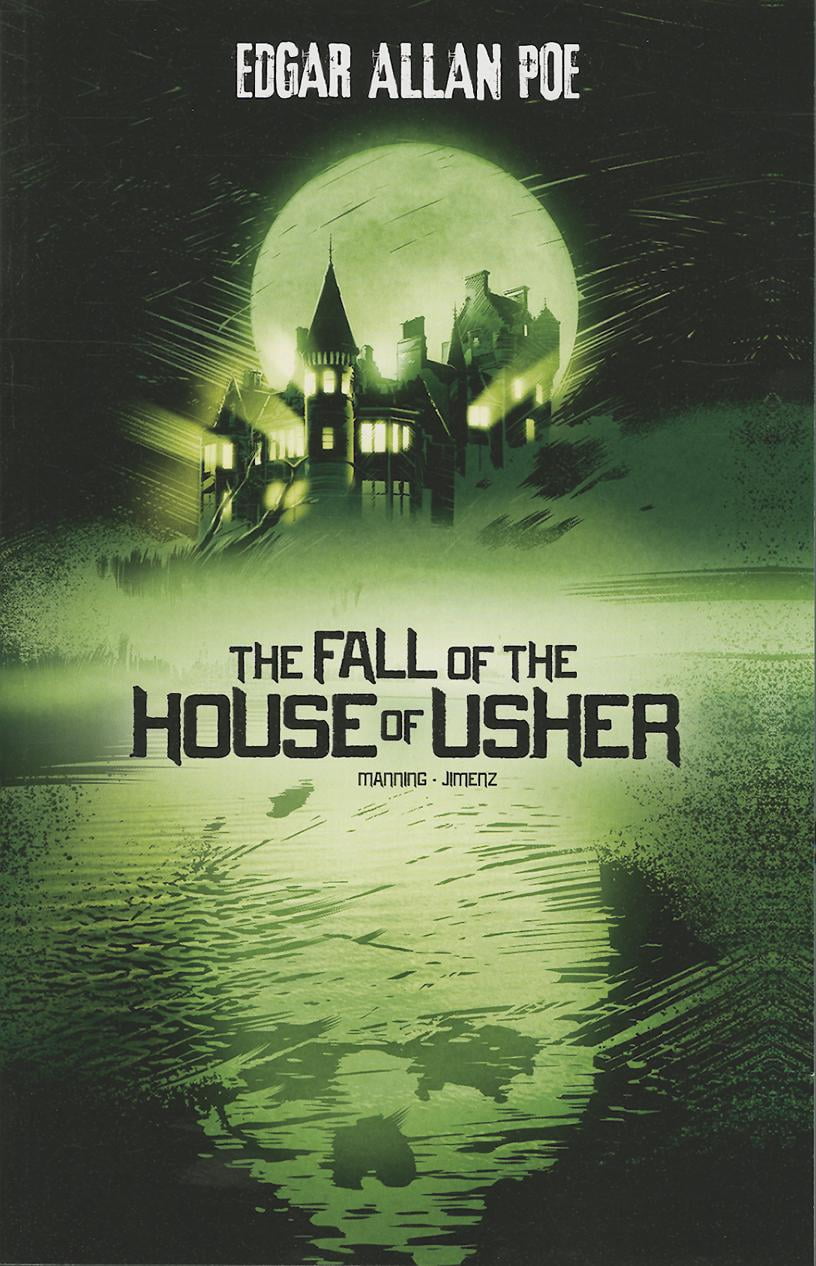Table Of Content

There she remains for a week, as Roderick roamsthrough his house aimlessly, or sits and stares vacantly at nothing for longhours. I shall ever bear about me a memory of the many solemn hours I thus spent alone with the master of the House of Usher. Yet I should fail in any attempt to convey an idea of the exact character of the studies, or of the occupations, in which he involved me, or led me the way. An excited and highly distempered ideality threw a sulphureous lustre over all. Among other things, I hold painfully in mind a certain singular perversion and amplification of the wild air of the last waltz of Von Weber. By the utter simplicity, by the nakedness of his designs, he arrested and overawed attention.

Which 'Fall of the House of Usher' episode is based on which Poe short story?
In “The Fall of the House of Usher,” the narrator visits his childhood friend, Roderick Usher. A television adaptation was produced by ATV for the ITV network in 1966 for the horror anthology series Mystery and Imagination.
Character descriptions
How 'The Fall of the House of Usher' Puts Its Twist on Edgar Allan Poe's Classics - Variety
How 'The Fall of the House of Usher' Puts Its Twist on Edgar Allan Poe's Classics.
Posted: Fri, 13 Oct 2023 07:00:00 GMT [source]
She writhes and throws herself upon Usher “in her now violent and final death-agonies,” killing him (25). No one mentions Madeline, and Roderick spends his time painting, playingmusic, reading, and writing. He paints a dark underground tunnel with beams ofstrange light shining through. Usher writes songs on his guitar, and thenarrator recounts one entitled “The Haunted Palace.” In the song a prosperouspalace falls, and only dancing ghosts remain.
Poe's Stories:
The writers and critics of Poe’s day rejected many of that movement’s core tenets, including its emphasis on the emotions and the experience of the sublime. Accordingly, commentaries on social injustice, morality, and utilitarianism proliferated in the mid-19th century. Poe conceived of his writing as a response to the literary conventions of this period. In “The Fall of the House of Usher,” he deliberately subverts convention by rejecting the typical practices of preaching or moralizing and instead focusing on affect and unity of atmosphere. ‘The Fall of the House of Usher’ can also be analysed as a deeply telling autobiographical portrait, in which Roderick Usher represents, or reflects, Poe himself. After all, Roderick Usher is a poet and artist, well-read (witness the assortment of books which he and the narrator read together), sensitive and indeed overly sensitive (to every sound, taste, sight, touch, and so on).
Deconstructing The Fall of the House of Usher's Murderous Poe Mash-Up - Vulture
Deconstructing The Fall of the House of Usher's Murderous Poe Mash-Up.
Posted: Fri, 13 Oct 2023 07:00:00 GMT [source]
Many critics have interpreted the story as, in part, an autobiographical portrait of Poe himself, although we should be wary, perhaps, of speculating too much about any parallels. Roderick Usher is a gifted poet and artist, whose talents the narrator praises before sharing a poem Usher wrote, titled ‘The Haunted Palace’. The ballad concerns a royal palace which was once filled with joy and song, until ‘evil things’ attacked the king’s palace and made it a desolate shadow of what it once was. When he looks back at the house, a crack in its roof has widened to split the house open.
Summary & Analysis
The story has a tantalizingly horrific appeal, and since its publication in Burton’s Gentleman’s Magazine, scholars, critics, and general readers continue to grapple with the myriad possible reasons for the story’s hold on the human psyche. These explanations range from the pre-Freudian to the pre–Waste Land and pre-Kafka-cum-nihilist to the biographical and the cultural. Indeed, despite Poe’s distaste for Allegory, some critics view the house as a Metaphor for the human psyche (Strandberg 705). Whatever conclusion a reader reaches, none finds the story an easy one to forget. Dreams, for instance, are the way our unconscious mind communicates with our conscious mind, but in such a way which shrouds or veils their message in ambiguous symbolism and messages. Roderick and Madeline are twins and the two share an incommunicable connection that critics conclude may be either incestuous or metaphysical,[7] as two individuals in an extra-sensory relationship embodying a single entity.

He entered, at some length, into what he conceived to be the nature of his malady. It was, he said, a constitutional and a family evil, and one for which he despaired to find a remedy — a mere nervous affection, he immediately added, which would undoubtedly soon pass off. Some of these, as he detailed them, interested and bewildered me; although, perhaps, the terms, and the general manner of the narration had their weight. No sooner had these syllables passed my lips, than — as if a shield of brass had indeed, at the moment, fallen heavily upon a floor of silver — I became aware of a distinct, hollow, metallic, and clangorous, yet apparently muffled reverberation.
Might we then interpret Roderick as a symbol of the conscious mind – struggling to conceal some dark ‘secret’ and make himself presentable to his friend, the narrator – and Madeline as a symbol of the unconscious? Note how Madeline is barely seen for much of the story, and the second time she appears she is literally buried (repressed?) within the vault. Several days later, Roderick tells the narrator that Madeline has died, and they lay her to rest in a vault. In the days that follow, the narrator starts to feel more uneasy in the house, and attributes his nervousness to the gloomy furniture in the room where he sleeps. The narrator begins to suspect that Roderick is harbouring some dark secret. One night, while Usher and the narrator are reading, Usher tells him that Madeline has died.
Episode 7: “The Pit and the Pendulum”
The house is old anddecrepit, and it seems to cause the madness of the last surviving Ushersiblings, Roderick and Madeline. When Madeline succumbs to an illness, she isburied in a house vault, only to return after a premature burial. Madelineemerges from the vault the night of an intense storm and collapses on herbrother in death. The narrator flees the house and looks back to see it sinkinto a swamp. Rather than convey a lesson, Poe's story explores gothic elementsof the supernatural and evil to convey this tale of horror.
For me at least — in the circumstances then surrounding me — there arose out of the pure abstractions which the hypochondriac contrived to throw upon his canvass, an intensity of intolerable awe, no shadow of which felt I ever yet in the contemplation of the certainly glowing yet too concrete reveries of Fuseli. Shaking off from my spirit what must have been a dream, I scanned more narrowly the real aspect of the building. Minute fungi overspread the whole exterior, hanging in a fine tangled web-work from the eaves. No portion of the masonry had fallen; and there appeared to be a wild inconsistency between its still perfect adaptation of parts, and the crumbling condition of the individual stones.
It was, especially, upon retiring to bed late in the night of the seventh or eighth day after the placing of the lady Madeline within the donjon, that I experienced the full power of such feelings. I endeavored to believe that much, if not all of what I felt, was due to the bewildering influence of the gloomy furniture of the room — of the dark and tattered draperies, which, tortured into motion by the breath of a rising tempest, swayed fitfully to and fro upon the walls, and rustled uneasily about the decorations of the bed. An irrepressible tremor gradually pervaded my frame; and, at length, there sat upon my very heart an incubus of utterly causeless alarm. Overpowered by an intense sentiment of horror, unaccountable yet unendurable, I threw on my clothes with haste (for I felt that I should sleep no more during the night), and endeavored to arouse myself from the pitiable condition into which I had fallen, by pacing rapidly to and fro through the apartment. A week after Madeline’s death, the narrator lies awake with an unexplainedfeeling of fear.


No comments:
Post a Comment